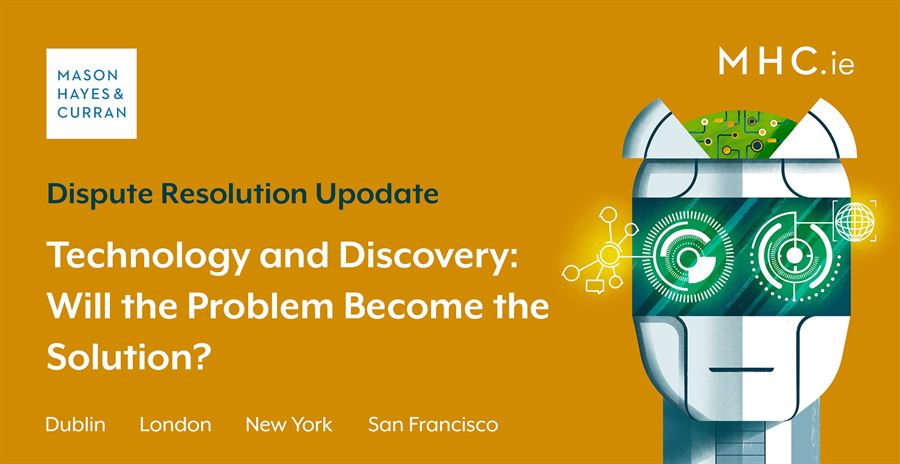Technology and Discovery: Will the Problem Become the Solution?

The Report, chaired by the former President of the High Court, Mr Justice Peter Kelly, has recognised that the costs burden placed on parties in meeting their discovery obligations has spiralled out of control. This has led the Review Group to conclude that the discovery process in its current format acts primarily as a barrier to access to justice.
The current process permits a party to seek discovery of any document that might enable it to; advance its case, damage its adversary’s case, or any document that might fairly lead to a train of enquiry that will have either of those two consequences.
A party’s entitlement to tangentially relevant documents, coupled with technological advances which have led to the rise of information and data, has resulted in an exponential increase in the cost incurred in gathering and reviewing potentially discoverable material.
The Review Group has sought to rectify these issues by recommending that legislation should be enacted to abolish a party’s current entitlement to discovery and a total reform of the accompanying court rules dealing with discovery process.
The Review Group’s recommendations
-
Parties should make standard discovery of documents they intend to rely on in their case within a pre-imposed timeline following delivery of their claim or defence.
-
Any request for further documents should be confined to documents that would have a material bearing on the outcome of the case. Parties should make a detailed request identifying those documents and provide an explanation as to why they are relevant to their case.
-
A party should only be allowed to make a reasonable request for electronically stored information. The parties should discuss potential issues in discovering certain categories of electronically stored documents with the court stepping in to provide directions in relation to searching in an efficient manner if the parties are not able to agree the process amongst themselves. Cost penalties should be levied against a party that failed to engage appropriately with the process.
The recommendations are welcome and should assist in reducing the overall proportion of legal spend dedicated to discovery.
How can technology help?
What is clear from the recommended new rules is that at the outset of proceedings parties will need to have identified the documentation they will to rely on to support their case. Where the production of such documents will not be up to old discovery standard, parties will be able to use and rely on data analytics tools and other machine learning technologies to identify those key documents they wish to rely on.
With the bandwidth of potentially discoverable material being reduced and a greater emphasis placed on the reasonableness of costs incurred in the discovery process, using technology to assist in gathering and understanding the universe of potentially discoverable material will become more relevant than ever.
Conclusion
The recommendations, if enacted, will provide much needed reform to the role of discovery in litigation. While technology was the catalyst for this change, it is clear that the ready adoption of technological advances, such as machine learning, will assist parties in identifying those key documents they wish to rely on and assist in the goal of reducing legal cost for all parties to litigation.
The Report in full can be accessed here
For more information, contact a member of our Dispute Resolution team.
The content of this article is provided for information purposes only and does not constitute legal or other advice.
Share this:



